Submitted by WA Contents
Archismith Architects designs gallery by using glass blocks to cool air inside and provide variations
Thailand Architecture News - Jul 10, 2019 - 06:24 24557 views
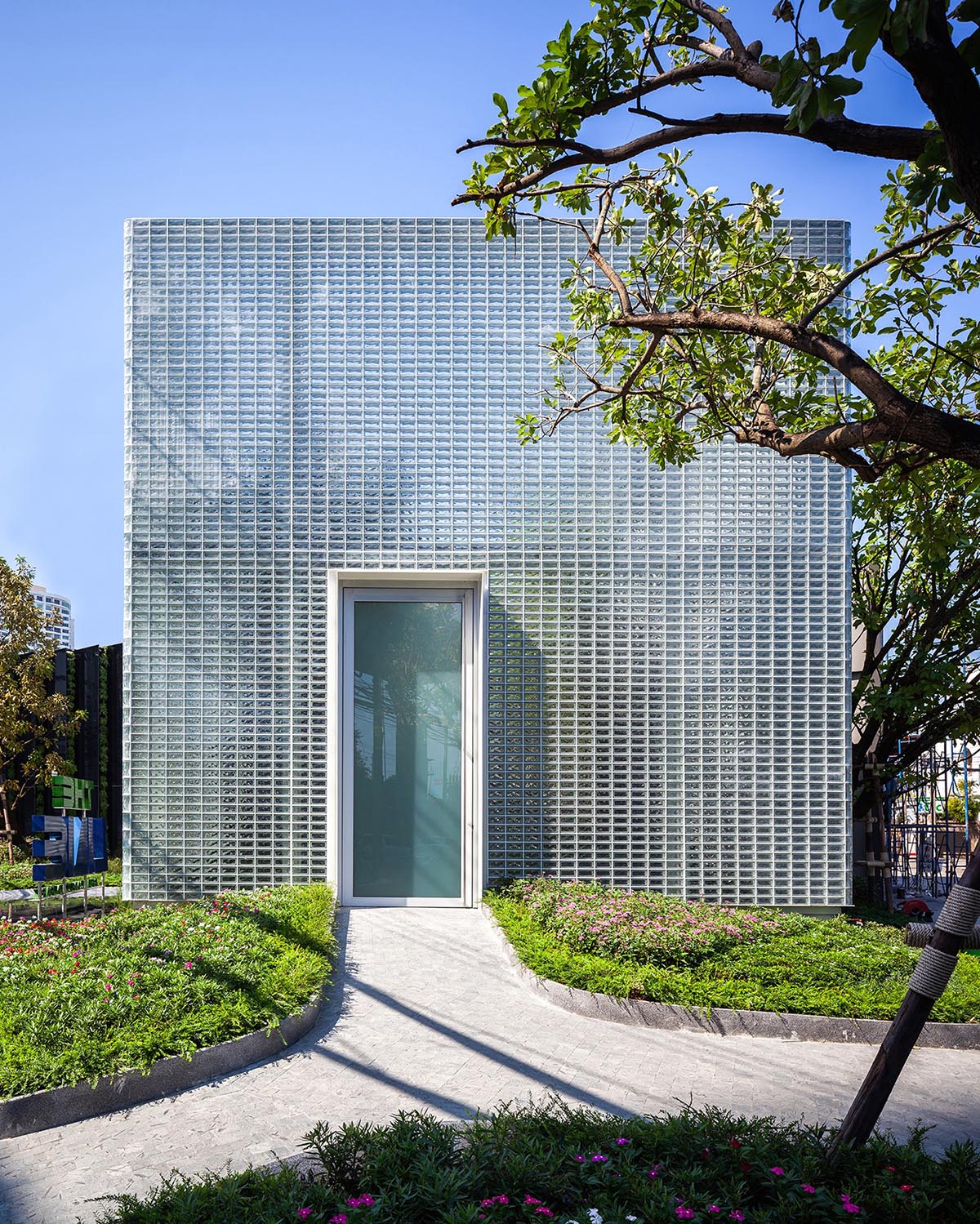
Archismith Architects has completed a sale gallery for a condominium project in Bangkok, Thailand, the two-storey gallery is made up of glass blocks as the principle material of the project.
Named The Glass Fortress, the building, covering only 457-square-metre area, was designed as the ale gallery of The LINE Phahonyothin Park, a new real estate development project in Ladprao district by Sansiri PCL. The project is situated near the intersection where Phahonyothin Road and Ratchadapisek Road meet and the chaotic traffic surrounding the site.
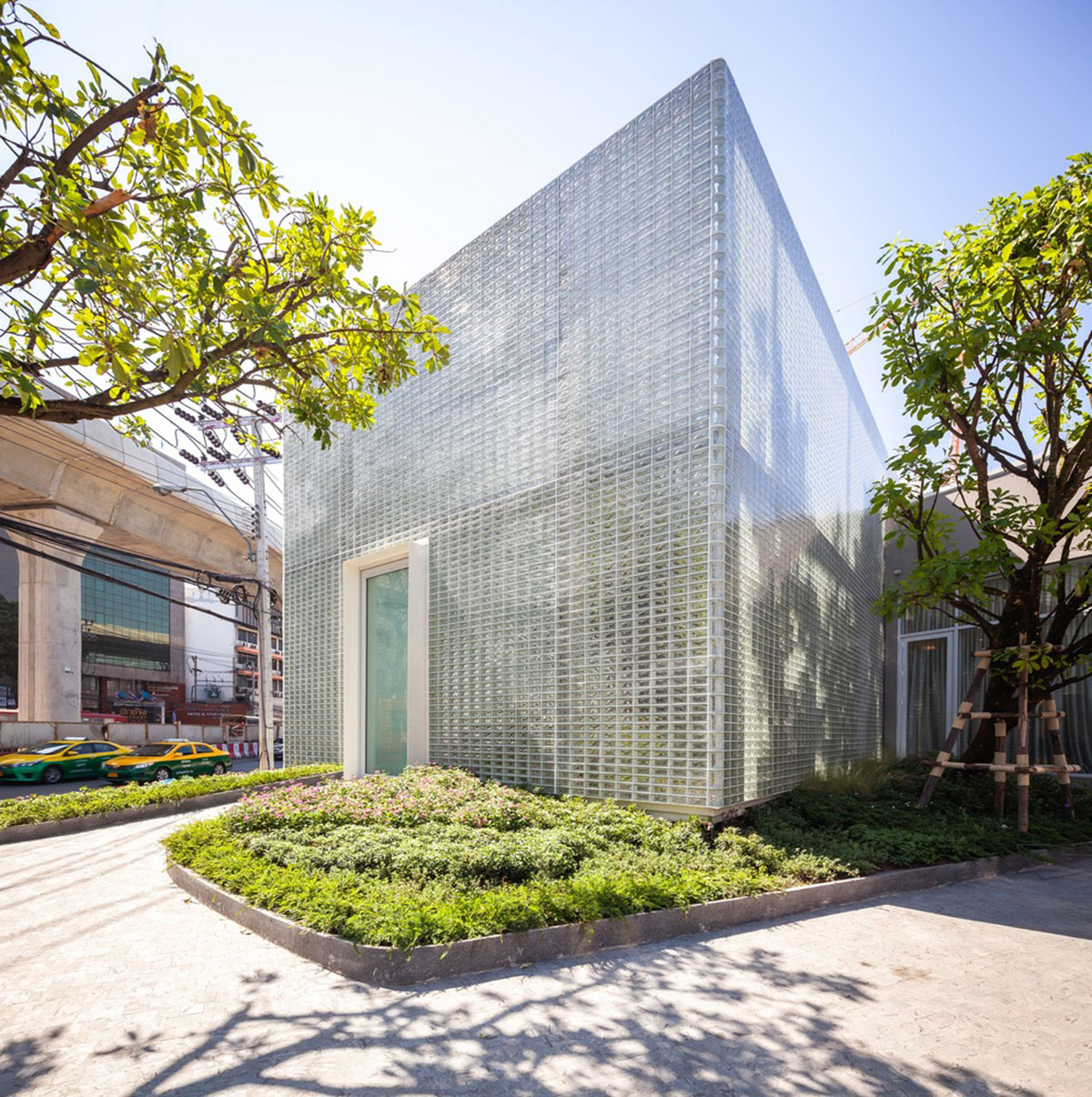
The architects used over 20,000 pieces of glass blocks to construct into 8-meter walls, forming an interior space that houses a small garden, serving as a transitioning area that leads visitors further inside the program where the sales office is located.

Image © SKY|GROUND
"Due to its proximity to a competitor’s sale gallery, one of the requirements from the client was that the building must disconnect itself from the competitor," said Archismith Architects.
"Leaving a generous gap was not an option for functional reasons so the design team decided to angle the building’s orientation away from the main road to create distinction."

Aside from achieving the main purpose, the solution provides not only a visual break on a dense urban fabric but also a greenery for the passersby. In line with a large green space provided at the main condominium development as a strong selling point, the sale gallery sets aside some of its land along the street to become a pocket park in a bustling urban area.
A simple box was then placed facing the incoming traffic to create a focal point and to balance out the whole architectural composition.

"Glass blocks are able to filter the unwanted noises and views just like a solid wall would, but with the translucent quality that the space from being too enclosed. With the material made up of two layers of fairly thick glass with a hollow void in the middle, it serves perfectly as a heat and noise insulation," added the studio.
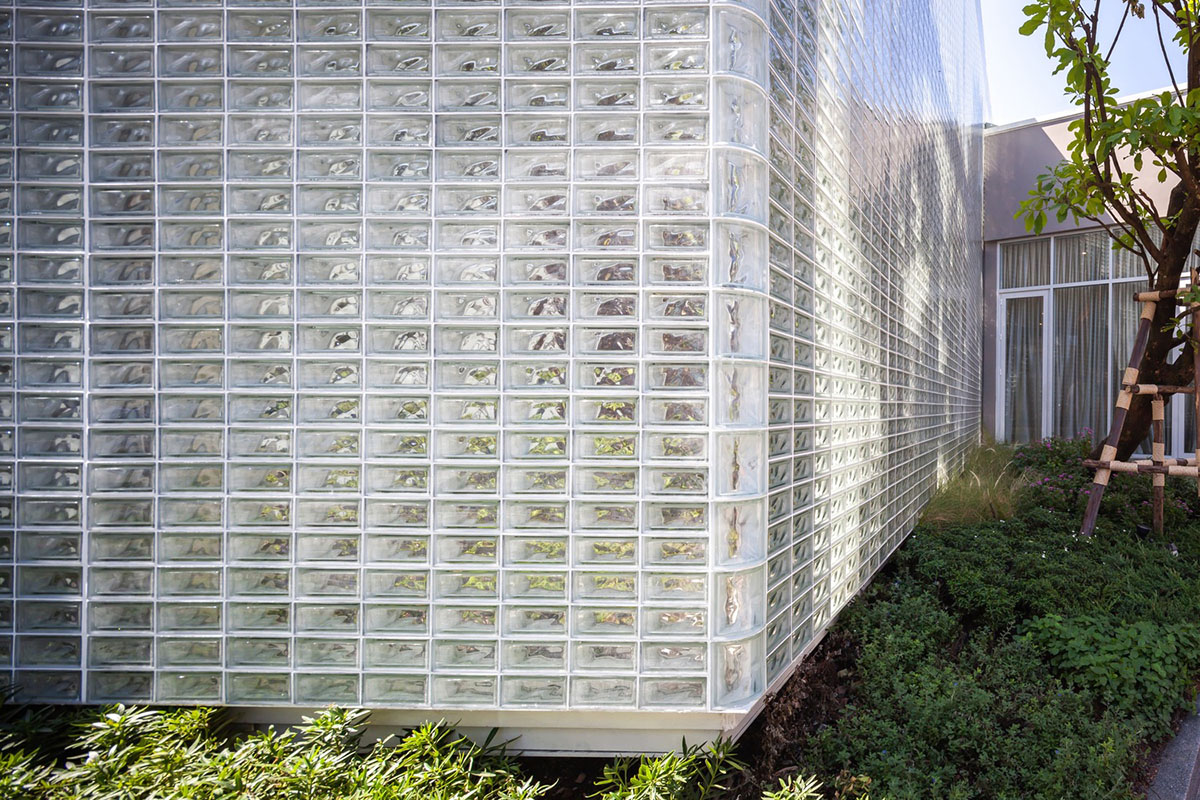
The facade changes its look perpetually following the condition of sunlight and the shifting shadow of trees. At night, the glass blocks are illuminated turning them into a giant glass lantern.
The glass blocks used for the project are rectangular as opposed to those conventional square-shaped type. They also have extended edges or wings to cover most of the grouting reducing the width to 2 mm instead of 10 mm as usual.

Jirawit Yamkleeb, co-founder of Archismith said that he chose to build the glass block walls on a steel foundation. The base of the structure is designed to have openings, allowing the cool air to access the interior space and push the heat out through the top opening.
"From the outside, the translucent quality of the blocks brings an interesting dynamic to the façade and allows it to naturally interact with the varying movements of sunlight and the trees growing inside the interior space."

Not only that, the material's ability to filter the sunlight effectively lowers the temperature of the interior space, resulting in a greater level of thermal comfort.

This special detail reduces the visual perception of joints, thus creating a continuous all glass effect to the walls. The repetition of glass block’s horizontal mortar joints helps reduce light transmission from the higher summer sun.
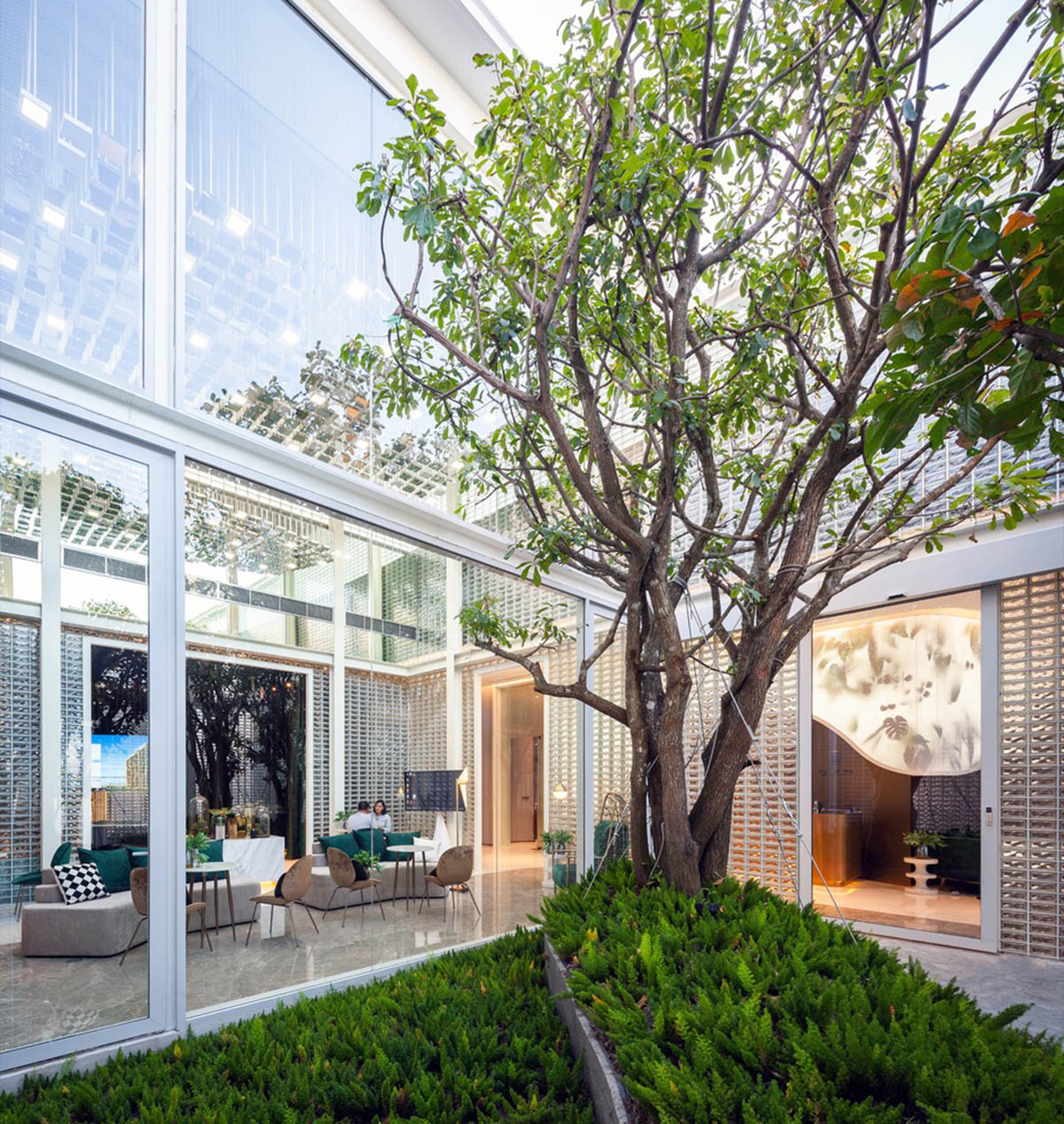
Rectangular glass block will also cut down the light transmission by double as compared to the conventional square type. Moreover, due to its nature being double glazing with air cavity, glass block can provide more than double the thermal resistance (R-Value) of single-glaze 1/8” thick plate glass so it can help to reduce heat transmission into the building.

Another design challenge was creating a peaceful environment for visitors to enjoy the garden despite the heavy traffic in front. With an attempt to effectively cut down the noise pollution and to block off unpleasant views of the surroundings, the design team introduced 8-metre-tall walls enclosing the garden.
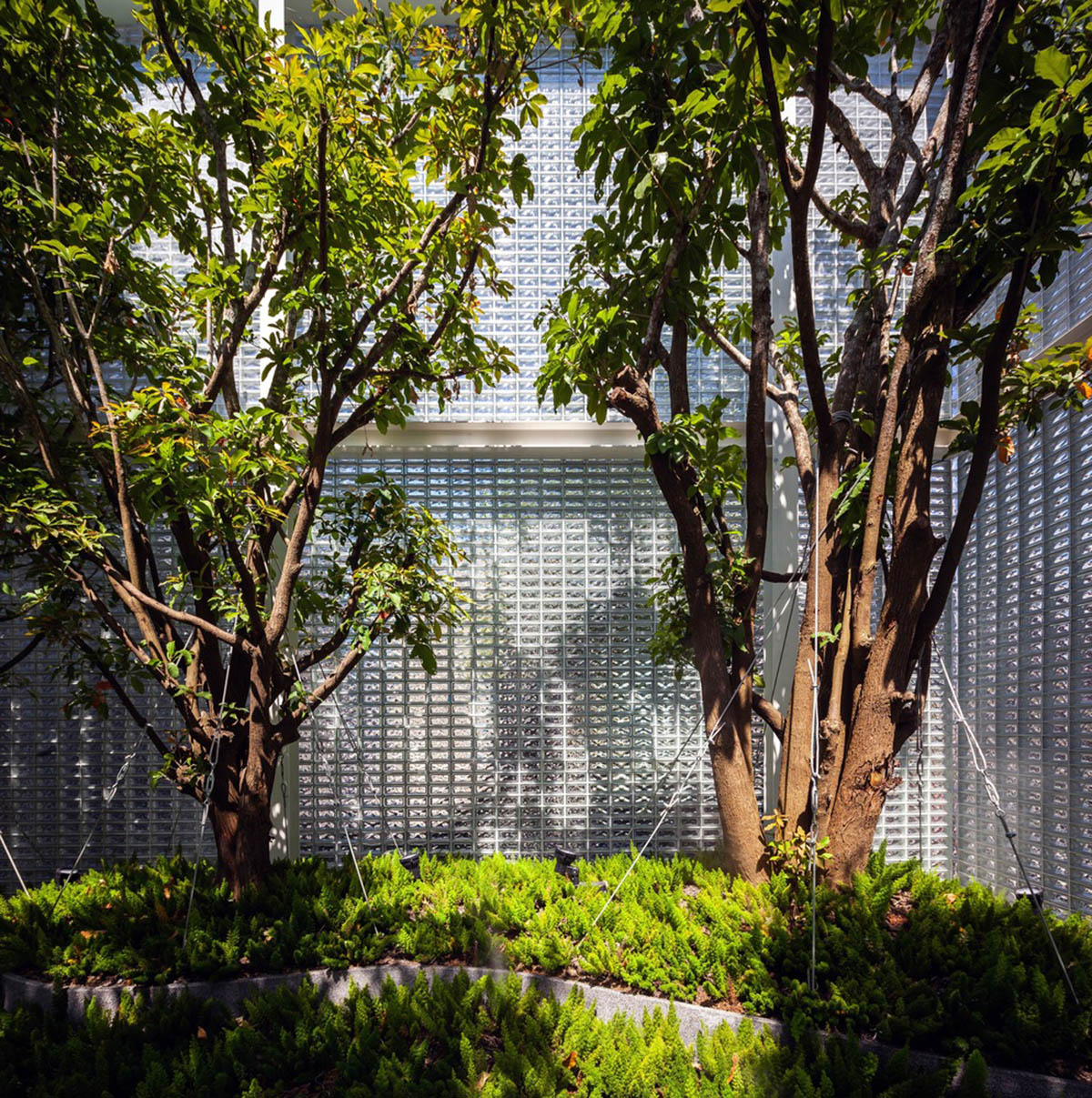
"Glass blocks have their own unique appeal. People think of it as somewhat an old-fashioned material used with bathroom walls or partition, or a decorative element that can be found in the houses that were constructed decades ago. But things are changing," added Yamkleeb.

In addition, the architects installed a water misting system to control the temperature inside the courtyard on sunny days. Through contextual design, tactical selection of material and integration of technology, a true serene microcosm within a chaotic city can be created within this glass fortress.











Image © SKY|GROUND

Image © SKY|GROUND

Image © SKY|GROUND

Image © SKY|GROUND










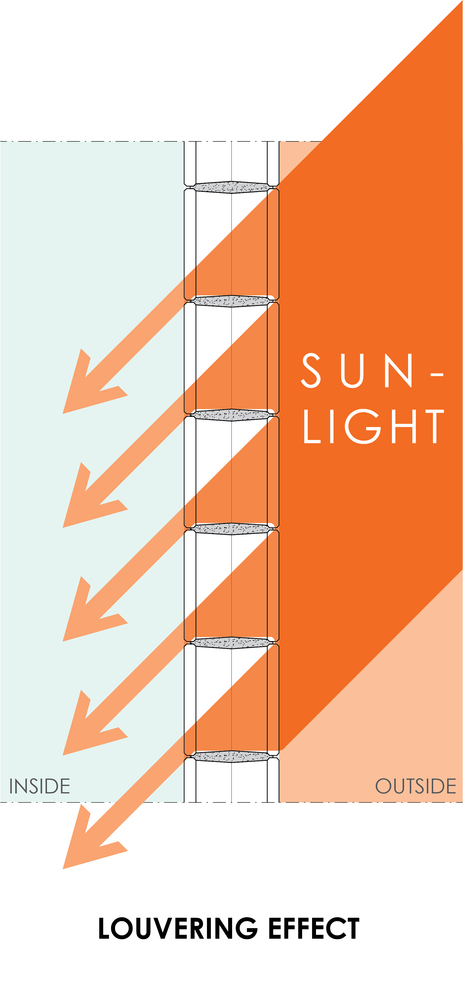
All images © Spaceshift Studio unless otherwise stated.
> via Archismith Architects
